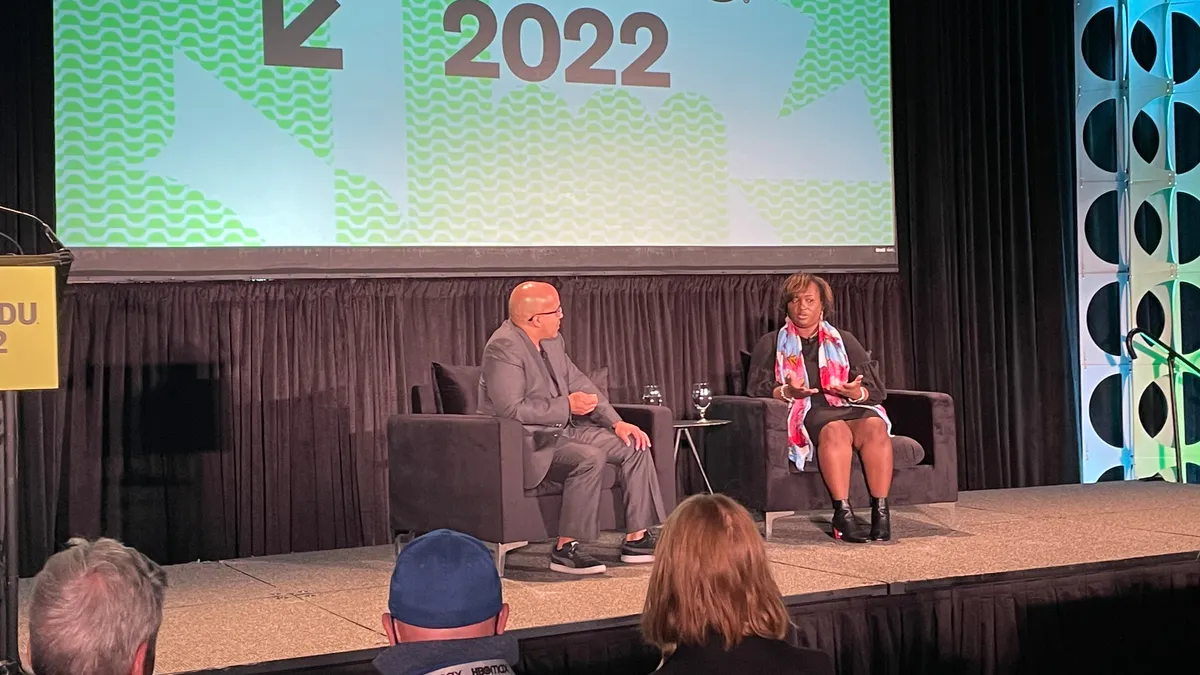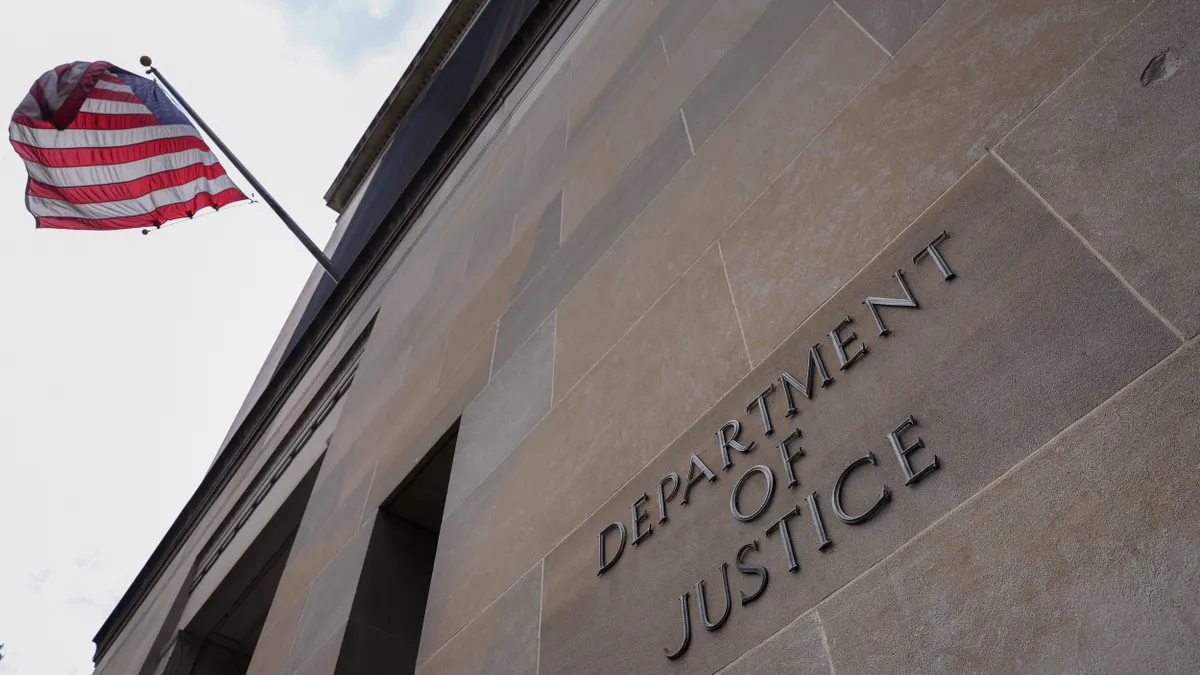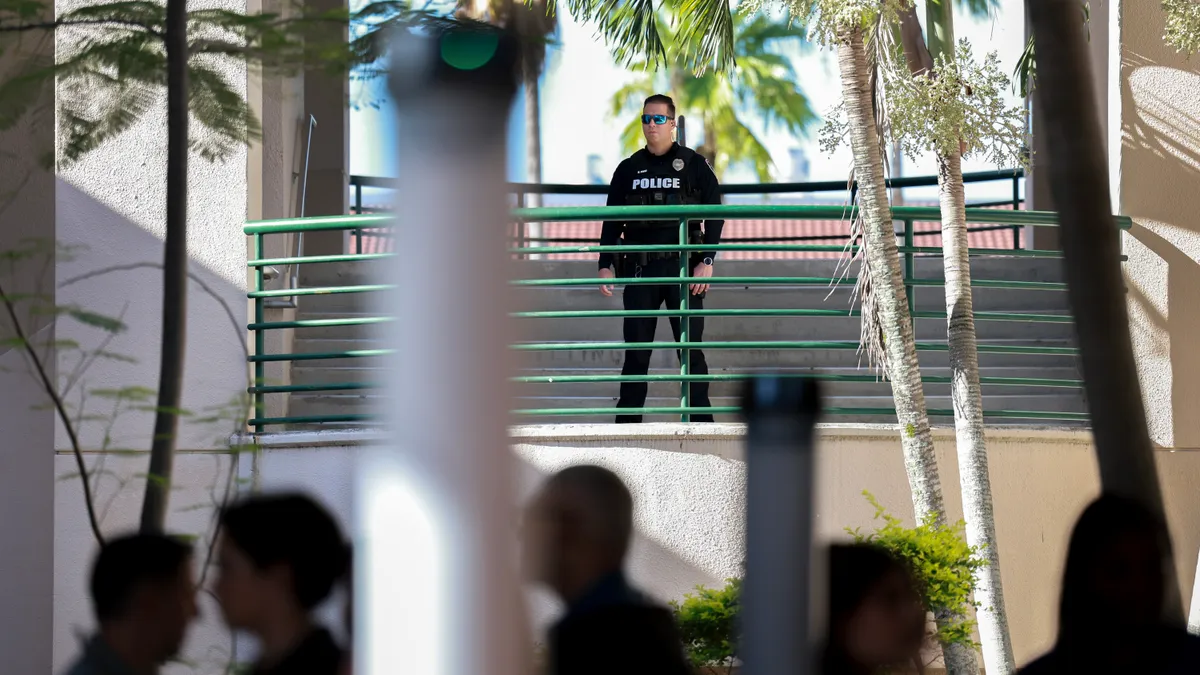Are schools working today?
This question served as a starting point for a conversation between Tequilla Brownie, CEO of The New Teacher Project, and Kevin Michael Foster, chair of African and African Diaspora Studies at University of Texas at Austin and an Austin Independent School District board member, at this year’s SXSW EDU conference in Austin, Texas.
In responding to the initial question, Brownie drew on her own experiences: Despite growing up in poverty in Arkansas, with an outhouse and no indoor plumbing, she succeeded in school and attended Yale University. But her story, she concluded, is the exception and not the rule in a system where the racial wealth gap is pervasive and growing — particularly for Black and brown students.
Just as wealth begets wealth, poverty begets poverty, Brownie said. And children in poverty are statistically more likely to enroll in historically low-performing schools.
So, Brownie continued, there must be an acknowledgement the system isn’t working and must be rethought in order for education to become the “great equalizer” it has the potential to be in terms of social mobility.
Over the course of the session, Brownie and Foster detailed the role of elected leaders, partnerships and more in making this happen.
Policy and ideology of elected leaders matters
For most of Brownie’s childhood in Arkansas, former President Bill Clinton was the state’s governor. During those years, she said, there was recognition the state was made up of a lot of rural communities without resources to extend co-curricular and extracurricular programming to low-income students like her.
“A lot of the seminal experiences that I had growing up, my direct community wasn't able to provide it, but the broader focus from elected officials and the broader community — yes, in K-12, but even outside of K-12 — were actually the things that were present for me,” Brownie said, noting that many initiatives and programs “driven straight from the governor’s office” expanded access for children statewide.
Her first leadership experience, for instance, was through a job at a governor’s youth camp that focused on those skills alongside academics and social skills.
“So what you seem to be hinting — well, not hinting at, saying — is policy matters. The framework and the ideology of our leaders, our elected officials, matters,” Foster said. But those frameworks set conditions of possibility that must then be leaned into with good practice and programming, he added.
Investing simply in averting failure isn’t enough
“Are we satisfied, really, with a return on investment of our public education system that delivers 91 out of 100 right back into poverty?” Brownie asked. “I'm not.”
For at-risk Black and brown students, there must also be a focus beyond simply averting the school-to-prison pipeline. “We can pat ourselves on the back all day that five more Black boys are not on the pipeline to prison because their reading scores went up. That's great,” Brownie said. “But my question is, ‘Is that your North Star, for your own child to no longer be on the pipeline to prison?’”
“I would ask the same of every Black and brown, every White, every affluent, every poor parent: Really, is that your goal for your own child? And I hope the answer is no.”
While there’s no silver bullet to “fix” education, Brownie said, there are a number of factors that must be addressed to make the necessary shift toward a system that provides more opportunity.
Among those factors is a need for greater recognition that despite foundational academic skills being important, all students also need experiences that prepare them to adapt and innovate in a fast-changing economy. And they need experiences that help them build social capital.
There must be more focus on helping learners identify their passions and what drives or motivates them, she said, so they can be guided onto a path to pursue futures aligned with those things.
Addressing these needs is also vital to the future of the nation’s economy. Noting that 43% of Black Americans earn less than $30,000 a year, Brownie said it’s unacceptable that people are set up to work for poverty.
Investing on the front end to set students across the socioeconomic spectrum up for viable economic pathways — rather than after they’re already failing and need to be caught up — is crucial to ensure education provides social mobility. “Let's invest before they fail so that we not only don’t fail them, we don't fail our country,” Brownie said.
Partnerships are crucial
Just as there’s no silver bullet to address all of the current education system’s shortcomings, there’s also no one organization that can lead that turnaround.
“TNTP is absolutely the right organization for me to have my impact in the world, and for the 800 staff members that are committed to this work, but we cannot do it alone,” Brownie said.
Spotlighting the Christensen Institute’s work on social capital is additionally promising, she said, “We don't have to start from zero. We should be partnering with other experts that are already thinking about that.”
By pooling together efforts from a variety of partners across different areas, Brownie said, districts can create more “synergy” and more successfully address these issues.
Currently, she said, there is a “perverse incentive” where a school might get funding, find the one “silver bullet” that will solve a problem, and try to prove to the funder, “Yay, we did it!”
“And at the end of the day, Johnny still can't read, and Johnny is going right back into the poverty he was into,” Brownie said. “That system, that whole framework … I can't stress enough, we can't continue to do that, because that's what's delivering the results that we're getting."




















